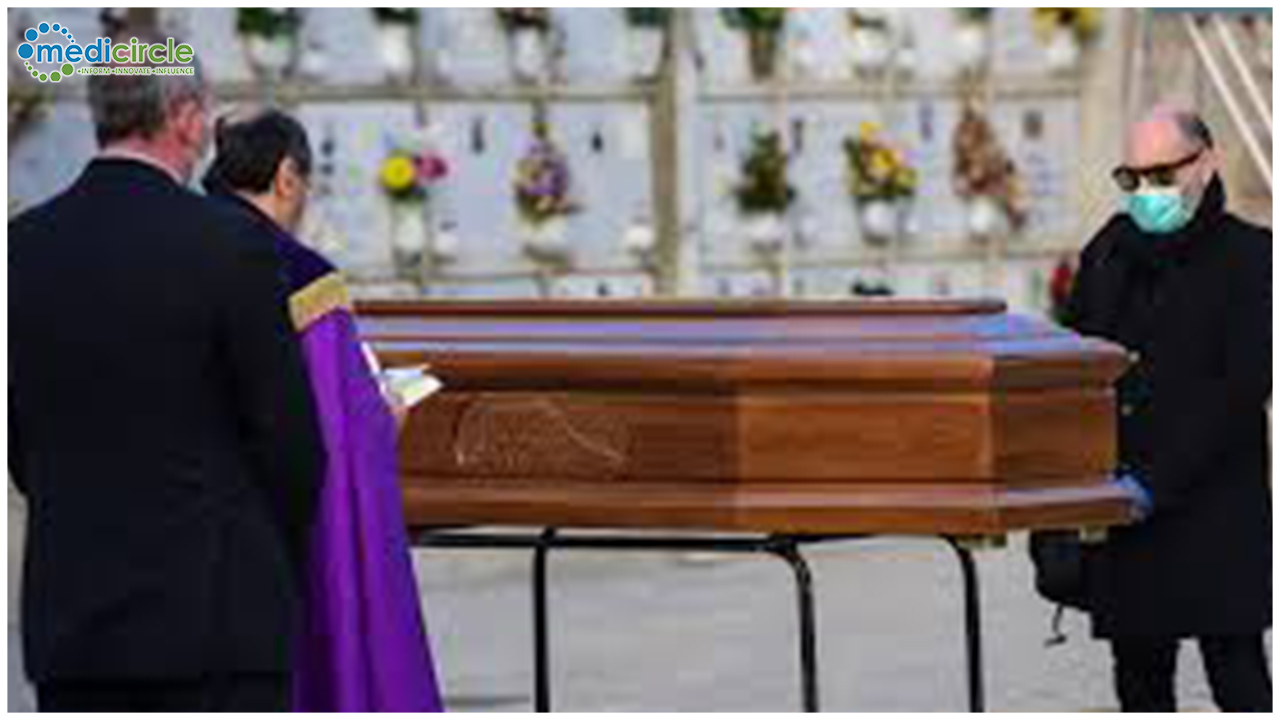For specialists in northern Italy, battling what is as yet Europe's most exceedingly terrible episode of COVID-19, the bleeding edges have moved past medical clinics as unique groups attempt to keep patients alive at home, away from the soaked wards where thousands have kicked the bucket. For staff on the purported USCA (Special Continuity Assistance Units) groups, it has been a depleting battle, at first hampered by a lack of crucial defensive apparatus, that blends crisis medication with the stun of losing phenomenal quantities of patients.
"It was and still is an extreme encounter that will leave its blemish on everyone," said Giulia Villa, a 33-year-old specialist in the northern town of Bergamo, where hundreds have kicked the bucket since the coronavirus episode rose in a close-by town on Feb 21.
"We gave all that we had and we are as yet attempting to help individuals. We particularly need to assuage the strain from emergency clinics by having the option to treat patients at home," Ms. Villa said.
Representing half of the in excess of 22,000 individuals who have passed on from the coronavirus in Italy, Bergamo's home locale of Lombardy on the outskirt with Switzerland stays one of the most noticeably terrible influenced zones on the planet and its primary care physicians have been under strain for quite a long time.
"We saw such huge numbers of individuals who should have been hospitalized rapidly however the issue was, the emergency vehicle administration just couldn't keep up," she stated, battling to control her feelings.
"There was a colossal number of calls, tragically, to declare passings which we just never had. So we got ourselves more than treating patients, affirming numerous passings at home."
Lombardy is Italy's monetary powerhouse with an emergency clinic framework to coordinate any in Europe, yet it verged on locking as ambulances carried in a huge number of patients daily. In an offer to soothe the weight, specialists set up the USCA units a month ago, meaning to offer more particular treatment than family specialists had the option to give while keeping patients out of jam-packed clinics.
Since March 19, when they went into activity, the units have completed in excess of 1,000 home visits after beginning issues getting enough covers and defensive gear for the clinical staff and essential oxygen bottles for patients with extreme respiratory issues.
"Toward the starting, we had next to no defensive hardware, presently we have enough. We have covers, we have glasses, we have everything presently," said Roberto Moretti, the specialist accountable for essential human services in Bergamo.
For bleeding-edge clinical staff like Ms. Villa, preparing to make a home visit takes at any rate 15 minutes as she dresses in a full-body suit with plastic spreads for her hair and feet just as gloves, a facemask, and defensive goggles.
Oxygen has additionally gotten simpler to give since providers have started delivering fluid oxygen. In any case, the individual cost has been huge as the groups manage debilitated and alarmed individuals battling forever or getting ready to watch a relative pass on.
"Nobody is set up for this however we made a move promptly and unquestionably we had truly low minutes, snapshots of dread and inconvenience," Ms. Villa said.
"Be that as it may, the desire to help and endure this dreadful circumstance was the quality that pushed us on consistently to help individuals".

 Accounting for half of the more than 22,000 people who have died from the coronavirus in Italy, Bergamo's home region of Lombardy on the border with Switzerland remains one of the worst affected zones
Accounting for half of the more than 22,000 people who have died from the coronavirus in Italy, Bergamo's home region of Lombardy on the border with Switzerland remains one of the worst affected zones









.jpeg)







.jpeg)

.jpg)










